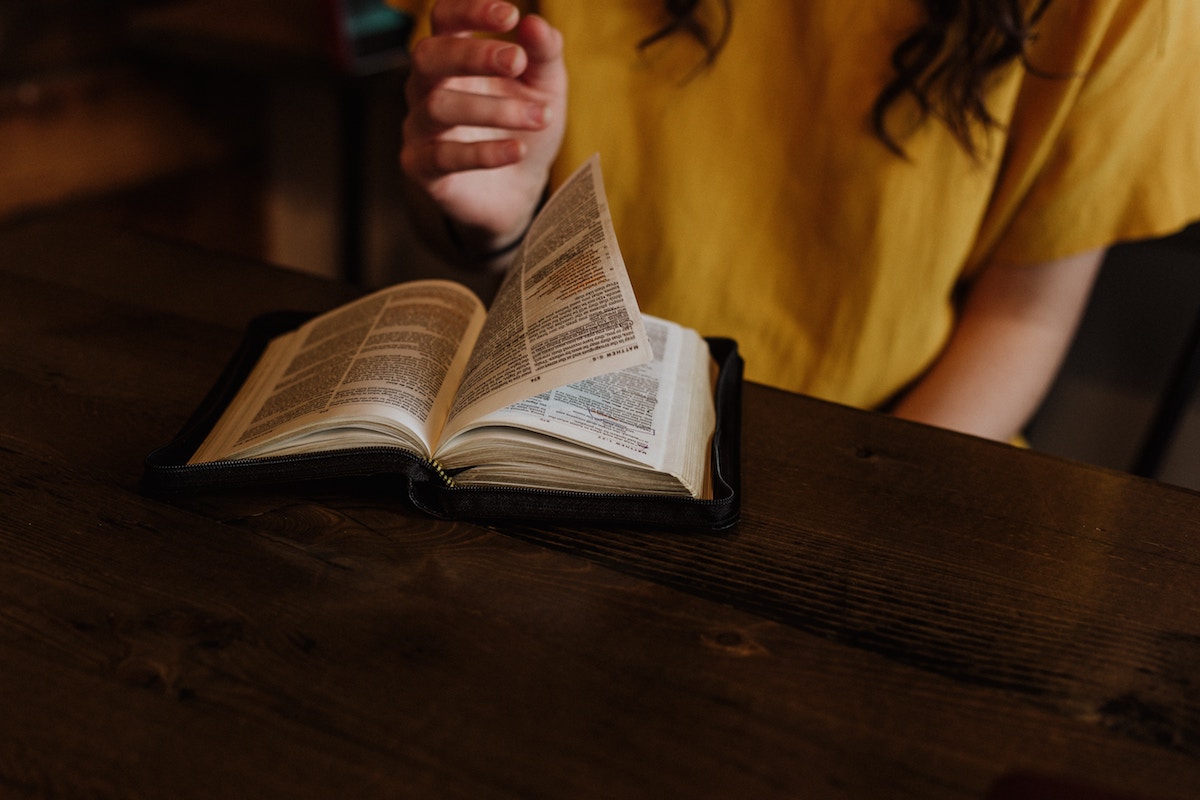
“What changed last time you read your Bible?
For most of us, the answer is: Nothing.
And so, for many of us, Bible reading slides into short spurts punctuating longer gaps. Others are more disciplined and optimistic. So we continue reading our Bible each day, hoping that in tomorrow’s reading, it’ll “work”, it will all click into place, and something will change. But we never reach tomorrow.”

Get quarterly issues of Explore, our daily Bible readings for adults, delivered direct to your door. You can also gift a subscription to someone else.
So begins John Hindley in his chapter entitled ‘Bible reading can damage your health’ in his book (still one of the favourite ones that we’ve published during my 8 years at TGBC) You Can Really Grow. And I read that, and I think: Ah, that’s me. Then he continues…
“I have struggled for years to read the Bible. Even as a full-time Christian pastor, my guilty secret was that the gaps between reading it spanned days or even weeks.”
And I think… ah, that’s me. In fact, in many ways that’s still me. This New Year, I want to make a fresh start. And I could do a lot worse than read this chapter once a week. Here are a few particularly helpful parts of it…
“I think I know what I was getting wrong about the Bible. First, I was reading it to help my understanding, to mould my behaviour, to guide my decisions, and to change my feelings. And second, I was reading it because it is true.
Paloma Faith wrote a song: Do you want the truth or something beautiful? and the lyric has stuck with me. I think I shared the assumption behind the title—that truth and beauty are incompatible. So the Bible was true, important, essential… but it was dry and, to be honest, a little dull. It was not beautiful.
Don’t get me wrong—the Bible can help my understanding, behaviour, decisions and feelings. And it is true. But it not about me, and it is not merely truth. That’s what I was getting wrong.
In fact, the Bible is about Jesus.
You probably knew that already. But do you read the Bible as if you know that? When we do, it changes everything. In Jesus, we see truth and beauty. We see the most wonderful life we could imagine, lived on the canvas of history, rather than a novel.
Do you want the truth, or something beautiful? Yes. I want both; I find them in Jesus, and so I long to read his Bible."
If you sit down with your Bible, think: I am about to hear from Jesus, about Jesus. I am opening up his love letter.
When my wife Flick and I were dating, we wrote each other letters. I read Flick’s letters for information about what she had been doing, I read them to know how to behave as her boyfriend, and I certainly read them for the feelings they gave me. But if this was all, I would have entirely missed the point, and broken her heart. I read those letters because I loved her. I wanted to hear from Flick because of my love for her and her love for me. And as I heard from her on those pages, I grew in my love for her.
I read them because I couldn’t not—because I loved her.
The Bible is first and foremost a love letter, from Christ, to his people. It is about Jesus and his love for us. Just as Flick’s letters enabled me to “see” her even though she wasn’t actually with me, so in the Bible we “see” Jesus. One day, we’ll be just like him, because we’ll be with him (1 John 3 v 2). But in this life, we become more like him as we hear from and see him in his word.
The Bible is about Jesus. Bible reading never saved anyone. Bible reading never grew anyone. Hearing from Christ, about Christ, in the Bible is what saves and grows us. [Grasping this] changes the nature of Bible reading from information to relation, from growing in knowledge to growing in love.
That is what Paul is getting at when he tells us to:
Let the message of Christ dwell among you richly as you teach and admonish one another with all
wisdom through psalms, hymns and songs from the Spirit, singing to God with gratitude in your
hearts. (Colossians 3 v 16)
He doesn’t expect the Bible simply to inform us; he expects it to dwell in us richly. This is a picture of Bible reading as a life-transforming experience, not as an information exchange. He expects it to change us, and for us to change others with it, through admonishing and teaching.
In other words, because he knew whose the words of the Bible were, and whom they were about, Paul knew what the Bible could do. He knew there was a way to read the Bible that changes us greatly—by reading it as a love letter from Christ.”
If I read the Bible like that, then… well… I’ll actually read the Bible. Not because I have to, but because I want to. Maybe you, like me, need to get restarted (or just started) with daily Bible reading. There are many helpful aids to helping us with devotional times in Scripture – daily notes, apps, accessible in-depth guides, and so on. You can find loads of blogs and articles giving you five tips (find a place on your own… establish a routine… etc). But honestly, I’ve realised that for me, it’s not so much that I need to learn the how as that I need to remember the why. I need to remind myself of what John says at the end of that wonderful chapter:
“It will change so much, and help you grow so much, if you sit down with your Bible, ask the Spirit for help, and think: I am about to hear from Jesus, about Jesus. I am opening up his love letter. He is true, he is beautiful, and he is speaking to me.”